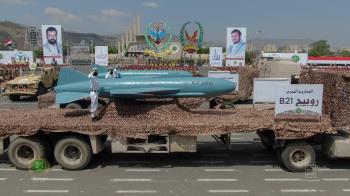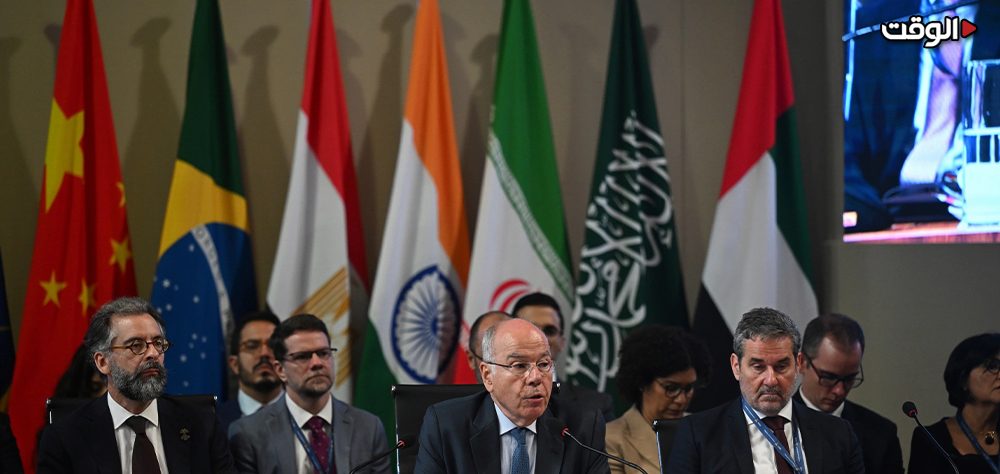Alwaght- Although BRICS primarily focuses on institution-building—such as the establishment of the New Development Bank to promote business cooperation among member states—the bloc is also increasingly emphasizing security cooperation. This is evident from its hosting of the recent meeting of the heads of the Supreme National Security Councils of member states in Brazil. The recent visit of secretary-general of the Iran's Supreme National Security Council, Ali Akbar Ahmadian, to Brazil further underscores Iran’s growing role in multilateral security cooperation and its efforts to strengthen its position within the transitioning international security order.
Significance of BRICS security cooperation
Founded in 2009, BRICS rests on the premise that international institutions are too dominated by Western powers and no longer serve developing countries. The bloc has sought to coordinate its members’ economic and diplomatic policies, establish new financial institutions, and reduce dependence on the US dollar.
But while the bloc questions the place of Western powers in the current world order, it does not question the norms on which the international system is built. It seeks to create independent security mechanisms to counter common threats such as terrorism, cyber threats, and foreign interference.
In fact, as a non-Western bloc, BRICS seeks to create a balance in the international security system and reduce dependence on Western-influenced institutions (such as NATO). While the West, led by the US, has either directly contributed to or exploited the destabilization of geopolitical centers of competition against its rivals through unilateralism and instrumental use of international norms and institutions in recent decades, the BRICS' balancing approach motivates other governments to use this group to strengthen these norms and also combat security threats to international peace and stability.
1. Expanding anti-terror cooperation and cybersecurity
The BRICS members are facing the common challenges of terrorism, especially takfiri extremism, trans-national organized crimes, and cyber threats. Cyber security is of high importance to the members of the bloc as about 40 percent of the Internet users are in the member countries and in 2023, the cyberattacks on their vital infrastructure saw a 35-percent rise.
This will create interest for the member countries in collaborating to develop, import or export cybersecurity-related technologies.
The meeting could pave the way for greater coordination in intelligence operations, sharing security data and developing joint strategies.
2. Economic and energy security
Today, energy security is recognized as one of the main components of sustainable development, and therefore, the attempt to take the pulse of the main energy arteries, especially oil and gas, has become an important part of the geopolitical competition of regional and international powers. Energy is one of the important areas in which the BRICS countries can operate, as internal trade of this bloc has increased by 200 percent from 2015 to 2023.
In the meantime, it is important to note that cooperation on energy security can help reduce the impact of unilateral Western sanctions. Major oil producers such as Russia, Iran, and Saudi Arabia—which together account for 43 percent of global oil production—are members of this bloc, as are large energy-consuming countries like India, China, and Brazil. As a result, securing energy transmission lines, which carry 65 percent of the world’s energy supply, holds strategic importance for the bloc’s members.
The share of BRICS members in the global energy market is increasing, while cooperation has so far been mostly bilateral. Therefore, experts believe that the increasing stakes in energy security and governance require a coordinated response and a multilateral strategy that can bring development opportunities to all members.
In this regard, Brazilian Minister of Mines and Energy Alexandre Silveira stated on March 20 at the opening ceremony of the second BRICS Energy Summit, chaired by Brazil, in Brasilia: “It is our responsibility to seek a balance between energy security, sustainable development and the transition to a low-carbon future.”
“The expansion of the bloc highlights our importance and calls us to strengthen the countries of the Global South,” the minister maintained. “This requires improving the governance of energy cooperation to make it more inclusive and sustainable. We must coordinate our actions and ensure that the integration of new members strengthens our capabilities and expands our opportunities.”
3. Coordination on regional crises
Given the Russian and Chinese roles in such crises as Ukraine and Taiwan and Iranian role in East Asia, BRICS can make a key platform to manage international crises. China, Russia, and Iran have held several joint naval drills in the Indian Ocean, Sea of Oman, and the Persian Gulf in demonstration of unity to secure navigation and shipping lines and counter trans-regional interventions.
Iran's place in West Asia security order in BRICS viewpoint
In the eyes of the BRICS, Iran is a key actor in the fight against terrorism especially that posed by ISIS, as well as protection of security. Iran's membership in the Shanghai Cooperation Organization (SCO) and BRICS has enhanced this Iranian position.
Also, Iranian control over the Strait of Hormuz and its role in the oil market has made it an important partner in security and trade for the bloc. Its partnership with China and Russia in energy projects guarantee energy flow to the BRICS members.
From another aspect, Iran has advanced cyber capabilities and can play its role in BRICS cyber security. In 2024, Iran, India and South Africa signed an agreement to form a center to fight cyber terrorism.
In summary, BRICS is transforming into an independent security pole and Iran with its strategic geographical position, advanced military capabilities, and influence in regional hot spots can contribute to meeting security aims of this bloc.



























